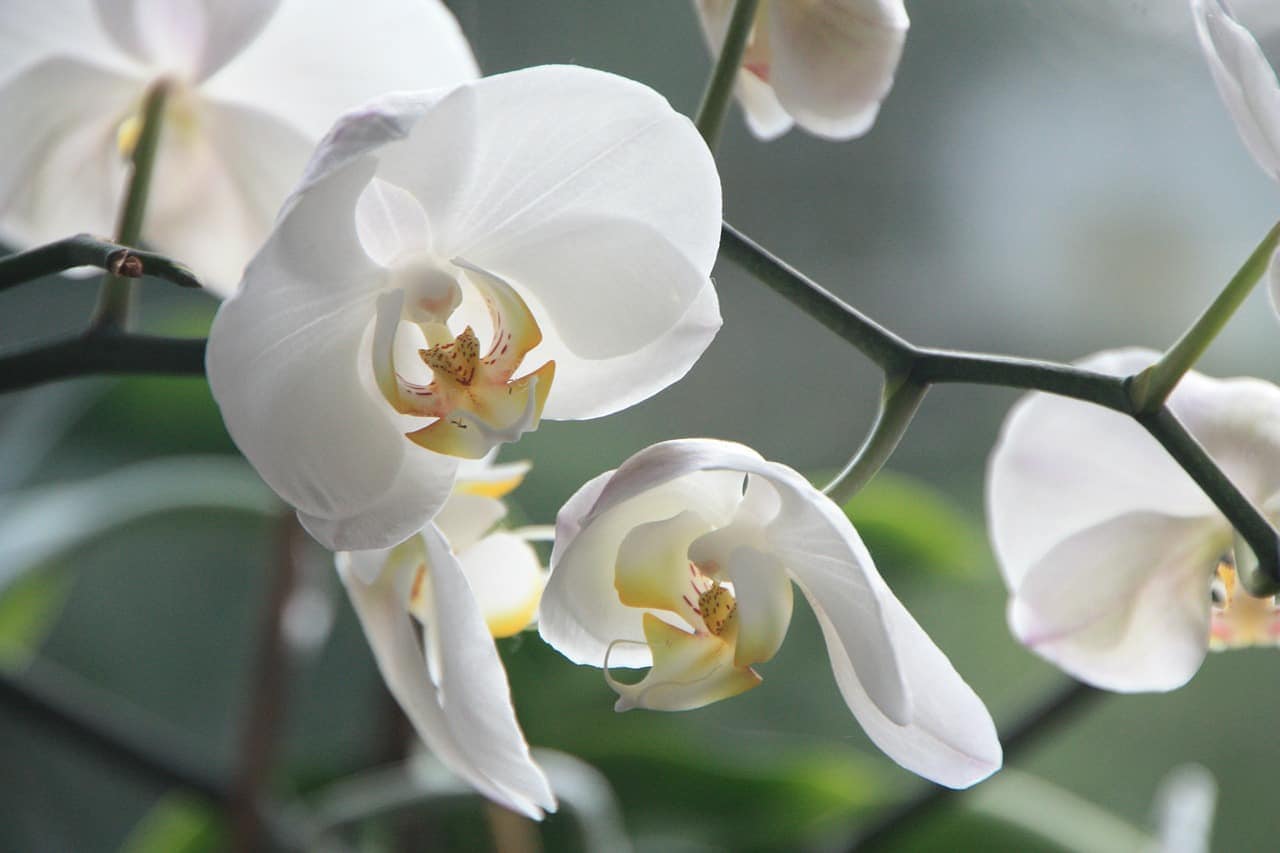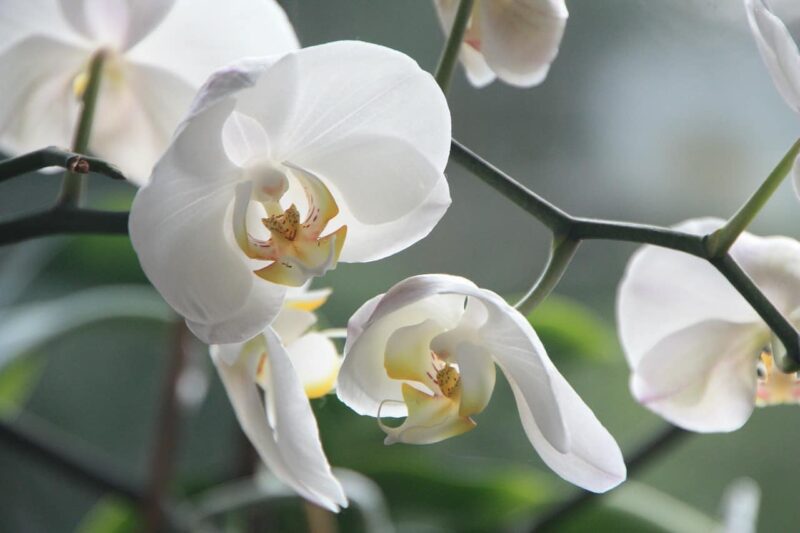Click to Skip Ahead
Some houseplants are poisonous to cats. If you want to have a house full of greenery but also have cats, it’s essential to know which plants are safe and which are poisonous. If you love orchids, it makes sense to check if you can own these beautiful plants while keeping your cat safe.
The good news is that most species of orchids that we can keep in our houses are completely safe for cats. Even if your cat nibbles a leaf or flower, they shouldn’t suffer ill effects.
Let’s find out a little more about keeping orchids and cats in the same place.

Why Does My Cat Eat Houseplants?
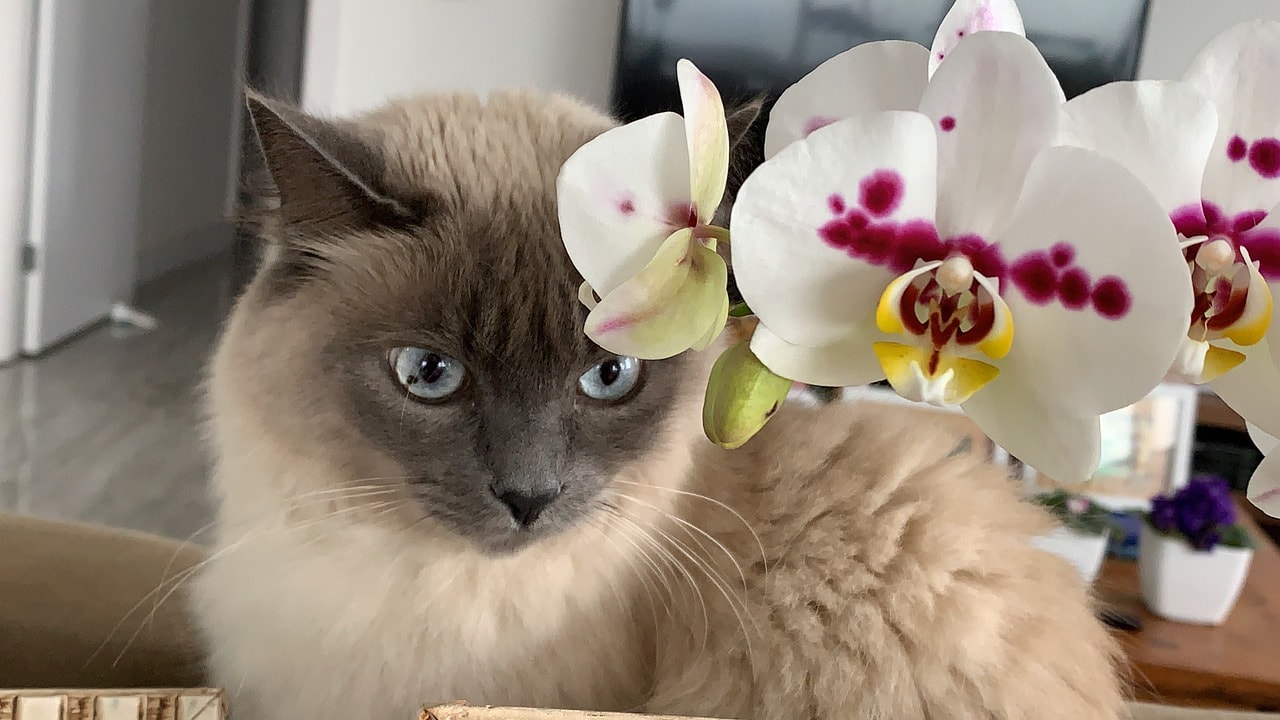
Even though cats are obligate carnivores with digestive systems designed to consume meat, some enjoy nibbling on greenery. It can add a little bit of fiber to their digestive system, which mimics the fiber that a cat in the wild would obtain by eating the grass-filled intestines of their prey.
Grass also contains nutrients, including folic acid, so cats may eat it when they need a boost. Another reason cats eat grass is that some enjoy the texture and taste! Cats are curious creatures, attracted to the smells and textures of many plants, which means you might see your cat taking a nibble of a houseplant leaf, whether that’s an orchid or something else.
Most Orchids Are Safe for Cats
Orchids grown as houseplants are from the following species:
- Phalaenopsis species — Moth orchid, moon orchid
- Cattleya species — Crimson Cattleya, Ruby-lipped Cattleya
- Epidendrum — Crucifix orchid, reedstem orchid
- Oncidium species — Dancing lady orchid, golden shower orchid
These are all non-toxic to cats, and even if they nibble a corner of a leaf, your cat shouldn’t suffer any ill effects. The ASPCA’s list of toxic and non-toxic plants is a great place to check any other houseplants you have.
What About Orchid Fertilizers?
Any fertilizer applied to your orchids to boost growth has the potential to cause harm to your cat. Fertilizers can be toxic, so only apply fertilizer to your orchids’ roots rather than spraying them over the leaves and flowers. You might choose to use a natural alternative that isn’t toxic or avoid the use of any fertilizers at all.
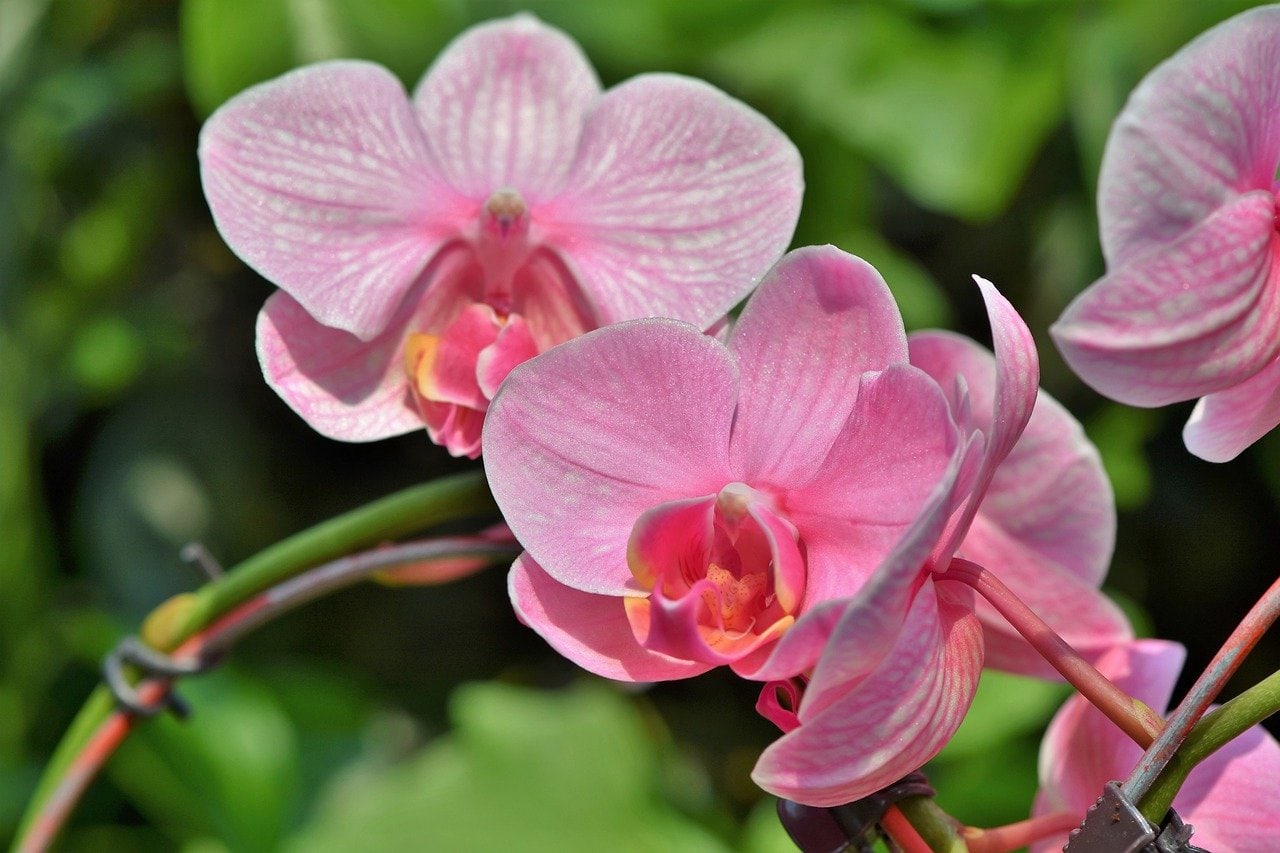
What if My Cat Ingests fertilizer?
If you think your cat has come into contact with fertilizers for orchids or other plants, you should seek immediate veterinary help. Fertilizers contain a blend of nitrogen, phosphorous, and potassium.
They sometimes also contain zinc, copper, molybdenum, and cobalt, which can be toxic depending on the concentration. Many fertilizers also contain fungicides, herbicides, and pesticides, increasing the risk of your cat developing issues.
- Drooling
- Vomiting
- Nausea
- Breathing difficulties
- Diarrhea
- Abdominal pain
- Mud-colored gums
If possible, bring along the bottle or packet of fertilizer you think your cat has ingested. It can help your vet decide on the best course of treatment.
How Can I Stop My Cat From Eating Orchids?
If your cat regularly cheats on the leaves of your orchids, it’s a good sign that they’d like to have some greenery in their diet. Alternatively, especially if your cat lives indoors, you can grow cat grass. A small tray of fresh grass will give your cat something green to eat that isn’t your orchid!
If your house is large enough, you can also keep your orchids in areas where your cat doesn’t spend time. Or, dedicate a particular zone as a cat-free area and keep your orchids there instead.
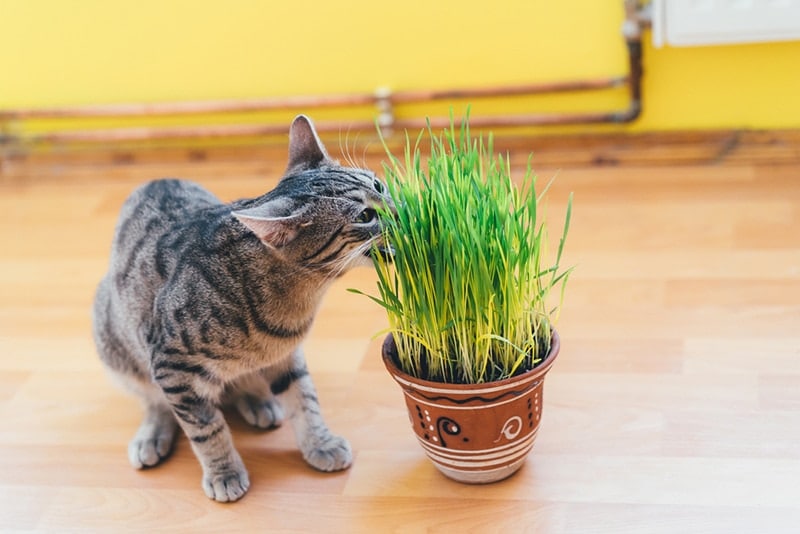
Which Orchids Are Poisonous to Cats?
While most orchids grown as houseplants aren’t poisonous to your cat, one species of wild orchid, the Cypripedium or Lady Slipper Orchid, can harm them. These usually grow wild, but you can order the species as a garden plant.
It’s best to avoid this variety of orchid. While the level of toxicity for cats hasn’t been determined, it’s better to be safe than sorry.
Orchids and cats
Orchids grown as houseplants aren’t toxic to cats, and you should be able to keep them in your home without worrying about your cat. Even if your kitty chews a bit of the leaves or flowers, they shouldn’t suffer adverse effects.
If your indoor cat has taken a liking to eating your houseplants, offer them freshly grown cat grass instead. It can help satisfy their craving for greenery without leaving bite marks on your plants!
Featured Image Credit: Pixabay

